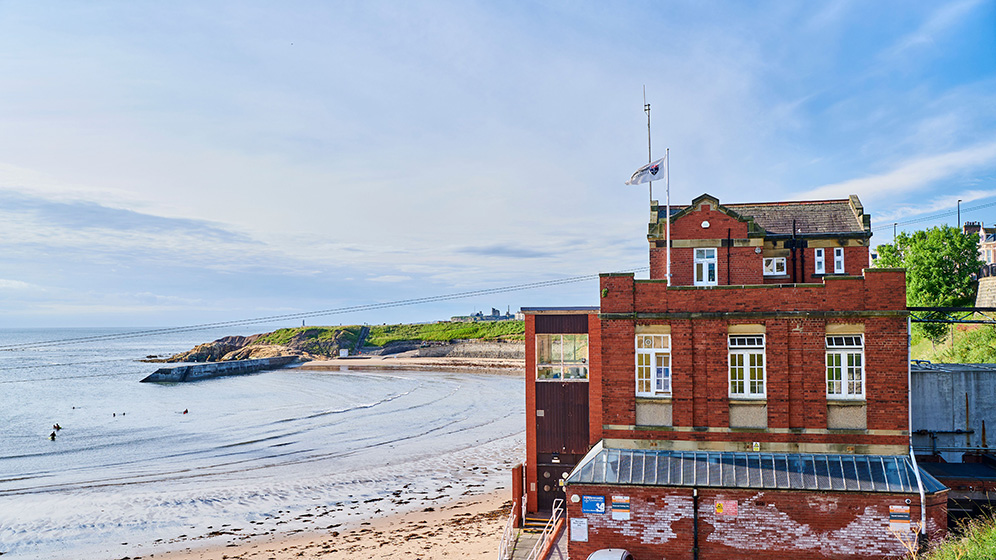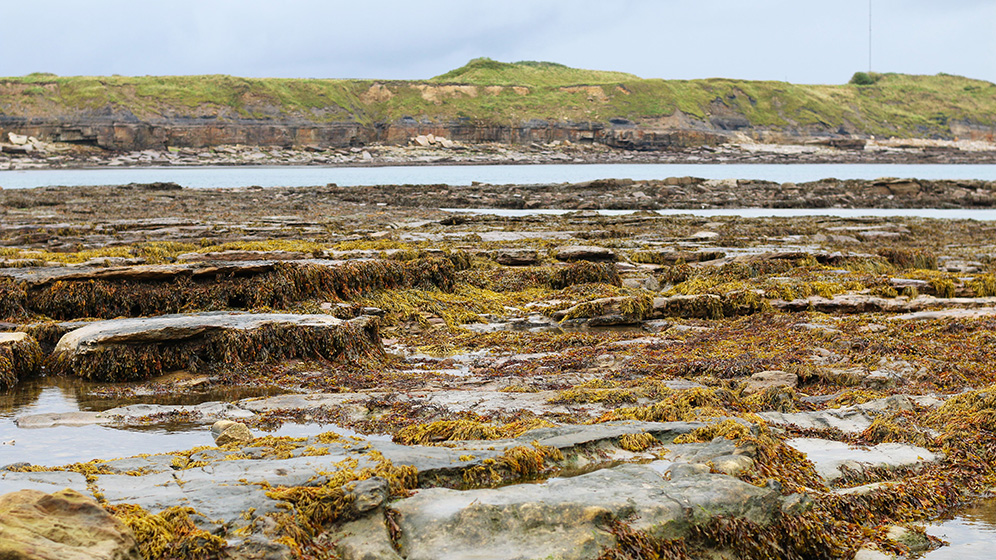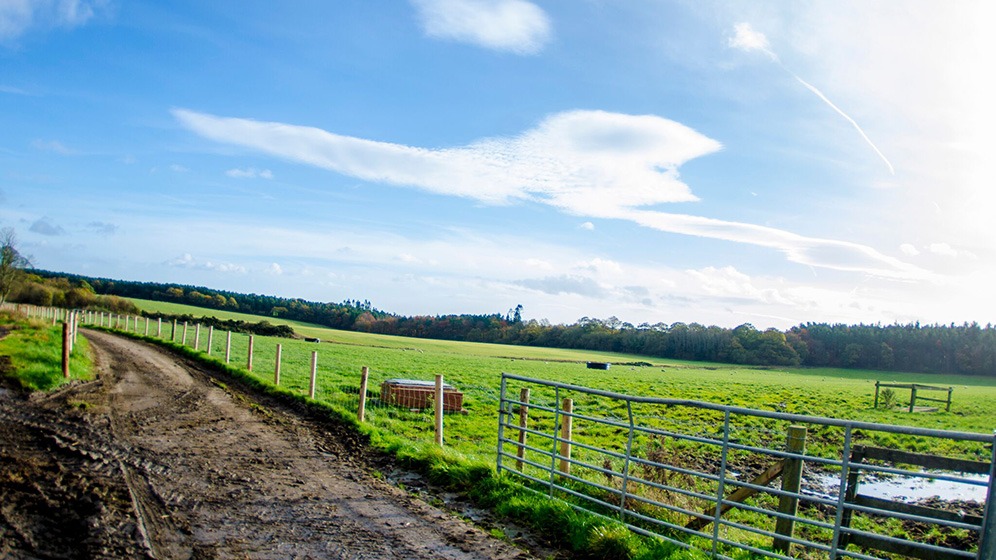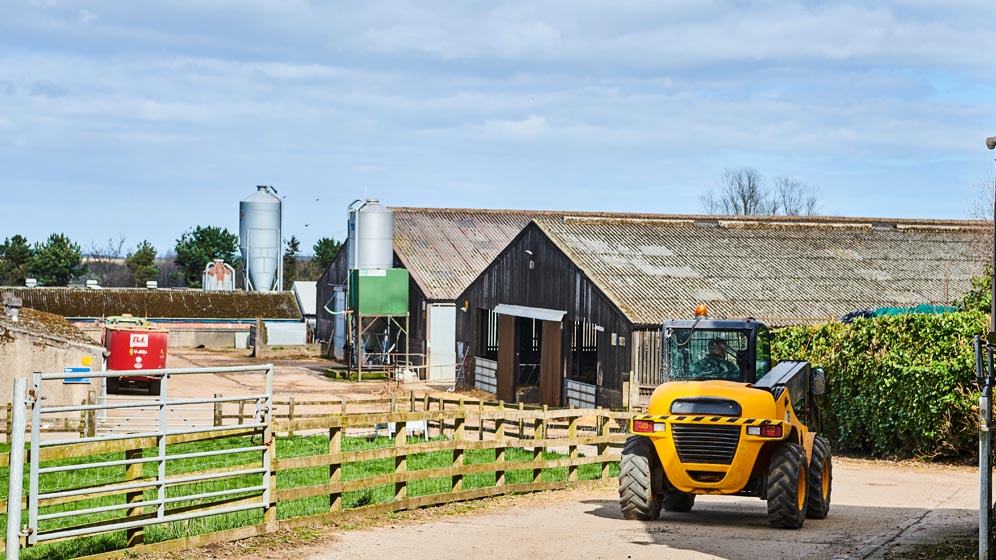Environmental Science BSc Honours
- UCAS code: F850
- Full time
- 3 years
Study the Earth’s physical, biological, and chemical systems, along with human impacts on the environment.
You are currently viewing course information for entry year: 2026
Next start date:
- September 2026
UCAS Institution name and code:
- NEWC / N21
Course overview
To tackle environmental issues on both a local and global scale, we must understand the Earth system – our geology, ecosystems, atmosphere and oceans - and how human activities like natural resource use and intensive farming, influence this.
Our Environmental Science degree combines this knowledge with a strong focus on sustainability.
Our location near Northumberland provides the ideal setting for hands-on experience. You'll have access to forests and coasts combined with a rich industrial history.
You’ll be working on real-world problems with our industry partners and leading researchers collecting data in the field and laboratory. This will ensure you have the skills to thrive in your future environmental career.
Opportunities to put these skills into action are possible on our field course and in your own research project.
Your course and study experience - disclaimers and terms and conditions
Please rest assured we make all reasonable efforts to provide you with the programmes, services and facilities described. However, it may be necessary to make changes due to significant disruption, for example in response to Covid-19.
View our Academic experience page, which gives information about your Newcastle University study experience for the academic year 2025-26.
See our terms and conditions and student complaints information, which gives details of circumstances that may lead to changes to programmes, modules or University services.
Quality and ranking
Professional accreditation and recognition
All professional accreditations are reviewed regularly by their professional body.
Modules and learning
Modules
The information below is intended to provide an example of what you will study.
Most degrees are divided into stages. Each stage lasts for one academic year, and you'll complete modules totalling 120 credits by the end of each stage.
Our teaching is informed by research. Course content may change periodically to reflect developments in the discipline, the requirements of external bodies and partners, and student feedback.
Optional module availability
Student demand for optional modules may affect availability.
Full details of the modules on offer will be published through the Programme Regulations and Specifications ahead of each academic year. This usually happens in May.
To find out more please see our terms and conditions
We introduce you to environmental science topics including geological, marine and ecological systems, concept and practice of sustainability, and field, laboratory and mapping methods
These lay the foundations for more specialised study in later stages.
Modules
| Compulsory Modules | Credits |
|---|---|
| Mapping the Earth: Location and Space | 20 |
| Sustainability in Practice | 20 |
| Academic and Professional Skills | 20 |
| Introduction to Sustainability | 20 |
| Plants, Environment, Agriculture | 10 |
| Environmental Science Field Course | 10 |
| Dynamic Earth | 10 |
| Introductory Oceanography | 10 |
In this Stage you delve deeper into the subject. You study compulsory modules that cover the practice of environmental science, terrestrial ecosystems and pollution. You will also take part in a residential field course, developing your research and practical skills.
Optional modules allow you to specialise in areas such as the oceans, conservation or landscape and heritage. You will develop your professional skills with a focus on research skills, data analysis and career development.
Modules
| Optional Modules | Credits |
|---|---|
| Law and Land Use | 10 |
| Landscape, Culture and Heritage | 20 |
| Site Management Planning | 20 |
| Pollution of Air, Water & Soil | 10 |
| Biodiversity, Ecology and Conservation | 20 |
| Oceans and Climate I | 20 |
You'll work on your own research project, with the support of an academic supervisor, presenting your results to staff and students.
You will study environmental impact assessment, a key skill in environmental careers. You'll also choose from a range of optional modules covering areas such as biodiversity conservation or environmental law.
Modules
We base these figures and graphs on the most up-to-date information available to us. They are based on the modules chosen by our students in 2024-25.
Teaching time is made up of:
- scheduled learning and teaching activities. These are timetabled activities with a member of staff present.
- structured guided learning. These are activities developed by staff to support engagement with module learning. Students or groups of students undertake these activities without direct staff participation or supervision
Teaching and assessment
Teaching methods
In stages 1 and 2, just over half of your teaching time will be spent in classroom-based lectures or seminars. The remainder will be made up of field classes, computer classes, and practical lab work. In Stage 3, greater emphasis is placed on project work, culminating in a final-year project based on a topic of your choice.
Assessment methods
You'll be assessed through a combination of:
-
Assignments – written or fieldwork
-
Dissertation or research project
-
Essays
-
Examinations – practical or online
-
Group work
-
Presentations
-
Projects
Skills and experience
Practical skills
Field trips will form an important part of your degree. They’re a great opportunity to apply your knowledge in a practical setting and learn how to design and plan an investigation.
You will gain sought-after laboratory and digital skills, including in the use of geographic information systems (GIS) and environmental monitoring technologies.
You'll also have access to Newcastle University Farms and marine facilities for research, teaching and demonstration.
The Dove Marine Laboratory is dedicated to the study of marine biology, oceanography, environmental science, and coastal processes.
State-of-the-art lab facilities will also be available on campus.
Research skills
In Stage 2 you'll take part in a week-long residential field course to develop your research skills. You'll explore environmental pollution, geology, ecology and more.
In Stage 3 you'll work independently, guided by an academic supervisor, to write a dissertation. This will give you the opportunity to plan and conduct a thorough investigation into a subject you're interested in, exploring current and future issues in environmental science.
Opportunities
Study abroad
Gain a global perspective, enhance your academic profile and open doors to exciting new experiences by studying abroad for one semester or a full academic year at one of our partner universities overseas. Study abroad usually takes place in stage 3 of your studies and extends your degree by one year.
You'll have the choice to study at a leading international university, including:
- Monash University
- University of Hong Kong
- University of Pittsburgh
You can also opt for short-term global opportunities like summer schools, virtual exchanges or internships that usually take place over the summer months.
Work placement
During your degree you can apply to spend 9 to 12 months on an industry placement, in the UK or abroad. Your work placement is a great opportunity to gain practical experience, acquire key business skills and make industry contacts. You’ll get University support from our dedicated team. Work placements usually take place between Stages 2 and 3 and extend your degree by a year.
Facilities and environment
Facilities
You will be based on campus at the School of Natural and Environmental Sciences. As a student of Environmental Sciences, you'll be taught in the unique, teaching space of the Houston Laboratory. Other facilities include the Geoscience laboratories which is a suite of 30 facilities located across the university. These facilities include:
- analytical labs for field sampling
- gas chromatography
- high-pressure liquid chromatography-mass spectrometry
- inductively coupled plasma mass spectrometry
- the Dove Marine Laboratory on the coast
- research vessel, The Princess Royal
You'll also have access to two commercial farms near Newcastle.
Our University farms, Cockle Park Farm and Nafferton Farm, will give you an insight into how real-world farms operate, so you're prepared for your future. Our farms are used for research, teaching and demonstration.
You will be taught in the new, and unique, teaching space of the Houston Laboratory: part of a £2 million redevelopment of Newcastle University’s Drummond Building.
You'll benefit from the Great North Museum on campus. It's home to over 9,000 geological and mineralogical specimens. The Mining Institute, with one of the world’s most comprehensive collections on mining engineering, is just a short walk away.
Support
We take your health and wellbeing seriously and are committed to supporting you throughout your studies so you can fulfil your potential at university. This support includes:
- a personal tutor who is an academic member of staff who can help you with academic and personal issues throughout your degree
- a peer mentor scheme which pairs you with a current student from your course to help you navigate your first year at university
- a staff-student committee, to give you an opportunity to have a say in how your degree works
- support, treatment and guidance on mental and physical health from our wellbeing team
Your future
The environmental sector has grown rapidly over the last decade. Increasing environmental legislation means there are many new employment areas in industry and the public sector.
Our graduates have gone on to work for a wide range of organisations including the European Parliament, Meteorological Office and Oxfam.
Graduates from our environmental science course have gone on to undertake roles such as environmental consultancy and environmental engineering, and find employment with:
- conservation bodies such as Natural England
- the Environment Agency
- water companies
- local government environmental health departments
- other environmental protection agencies
Sustainable solutions
Sorry, you need JavaScript to view this video
The Sustainable Solutions module at Newcastle University offers you the opportunity to collaborate with industry professionals on projects that address real-world sustainability challenges. This hands-on experience enhances your problem-solving skills and prepares you for successful careers in sustainability-focused roles.
You'll have many opportunities to interact with industry through:
- guest speakers
- visits
- industry networking events
- opportunities to attend conferences
Careers support
Our Careers Service is one of the largest and best in the country, and we have strong links with employers. We provide an extensive range of opportunities to all students through our ncl+ initiative.
Visit our Careers Service website
Recognition of professional qualifications outside of the UK
If you’re studying an accredited degree and thinking about working in Europe after you graduate, the best place to find current information is the UK Government’s guidance on recognition of UK professional qualifications in EU member states. This official resource explains whether your profession is regulated in another country, what steps you need to take, and which organisation you should contact.
Entry requirements
All candidates are considered on an individual basis and we accept a broad range of qualifications.
The entrance requirements and offers below apply to 2026 entry.
| A-Level | |
|---|---|
| International Baccalaureate | |
|---|---|
Other UK and the Republic of Ireland qualifications
Alternative offers at Newcastle
Through one of our contextual or alternative offer routes, you could receive an offer of up to three grades lower than the typical requirements.
Contextual offers
We use certain contextual data from your UCAS form, alongside your application, to consider challenges that you may have faced in your education and the potential effect this may have had on your qualifications. This means you may be eligible to receive a lower contextual offer.
PARTNERS offers
One of the largest and longest support entry routes to university of its kind for students from underrepresented backgrounds. We support applicants from application through to study.
Realising Opportunities offers
A unique programme delivered in collaboration with 10 leading, research-intensive universities in the UK. The programme is open to students in Year 12/first year of college.
Pathways to Newcastle offers
Pathways to Newcastle, our national skills entry route, is available for specific subject areas.
High Performance Athletes
We support promising athletes at the application stage, who compete in regional, national or international levels in their sport.
Qualifications from outside the UK
English Language requirements
Entrance courses (INTO)
International Pathway courses are specialist programmes designed for international students who want to study in the UK. We provide a range of study options for international students in partnership with INTO.
These courses are specifically designed for international students who want to study in the UK and progress onto one of our undergraduate degrees. Our International Study Centre, has a range of study options including:
- International Foundation
- International Year One
- English Language courses
Find out more about International Pathway courses
Admissions policy
This policy applies to all undergraduate and postgraduate admissions at Newcastle University. It is intended to provide information about our admissions policies and procedures to applicants and potential applicants, to their advisors and family members, and to staff of the University.
University Admissions Policy and related policies and procedures
Credit transfer and Recognition of Prior Learning
Recognition of Prior Learning (RPL) can allow you to convert existing relevant university-level knowledge, skills and experience into credits towards a qualification. Find out more about the RPL policy which may apply to this course.
Tuition fees and scholarships
Tuition fees for academic year 2026-2027
The 2026 entry home fees have not yet been confirmed.
| Qualification: BSc Honours | |
|---|---|
|
Home students full time 3 years |
Tuition fees (Year 1)
Not set |
|
International students full time 3 years |
Tuition fees (Year 1)
31,500 |
Year abroad and additional costs
For programmes where you can spend a year on a work placement or studying abroad, you will receive a significant fee reduction for that year.
Some of our degrees involve additional costs which are not covered by your tuition fees.
Scholarships
Find out more about:
Open days and events
You'll have a number of opportunities to meet us throughout the year at our on-campus and virtual open days.
You'll be able to:
- explore our beautiful campus
- find out about our vibrant city
- discover what students think about studying at Newcastle
You'll also have the opportunity to speak to academic staff and find out more about the subjects you're interested in.
Find out about how you can visit Newcastle in person and virtually.
We regularly travel overseas to meet with students interested in studying at Newcastle University. Visit our events calendar to find out when we're visiting your region.
How to apply
Apply through UCAS
To apply for undergraduate study at Newcastle University, you must use the online application system managed by the Universities and Colleges Admissions Service (UCAS). All UK schools and colleges, and a small number of EU and international establishments, are registered with UCAS. You will need:
- the UCAS name and institution codes for Newcastle University (NEWC/N21)
- the UCAS code for the course you want to apply for
- the UCAS 'buzzword' for your school or college
If you are applying independently, or are applying from a school or college which is not registered to manage applications, you will still use the Apply system. You will not need a buzzword.
Apply through UCASApply through an agent
International students often apply to us through an agent. Have a look at our recommended agents and get in touch with them.
Get in touch
By phone
Call us on +44 (0) 191 208 3333 and press option 1. Our opening hours are Monday to Friday 10am until 4pm.
Live chat
Our NCL chatbot might be able to give you an answer straight away. If not, it’ll direct you to someone who can help.
You'll find our NCL chatbot in the bottom right of this page.
Online
Book a one-to-one chat
Book a slot with one of our Environmental Science academic staff for a one-to-one chat about your subject of interest, student experience, and more: Book now
Keep updated
We regularly send email updates and extra information about the University.
Receive regular updates by email







